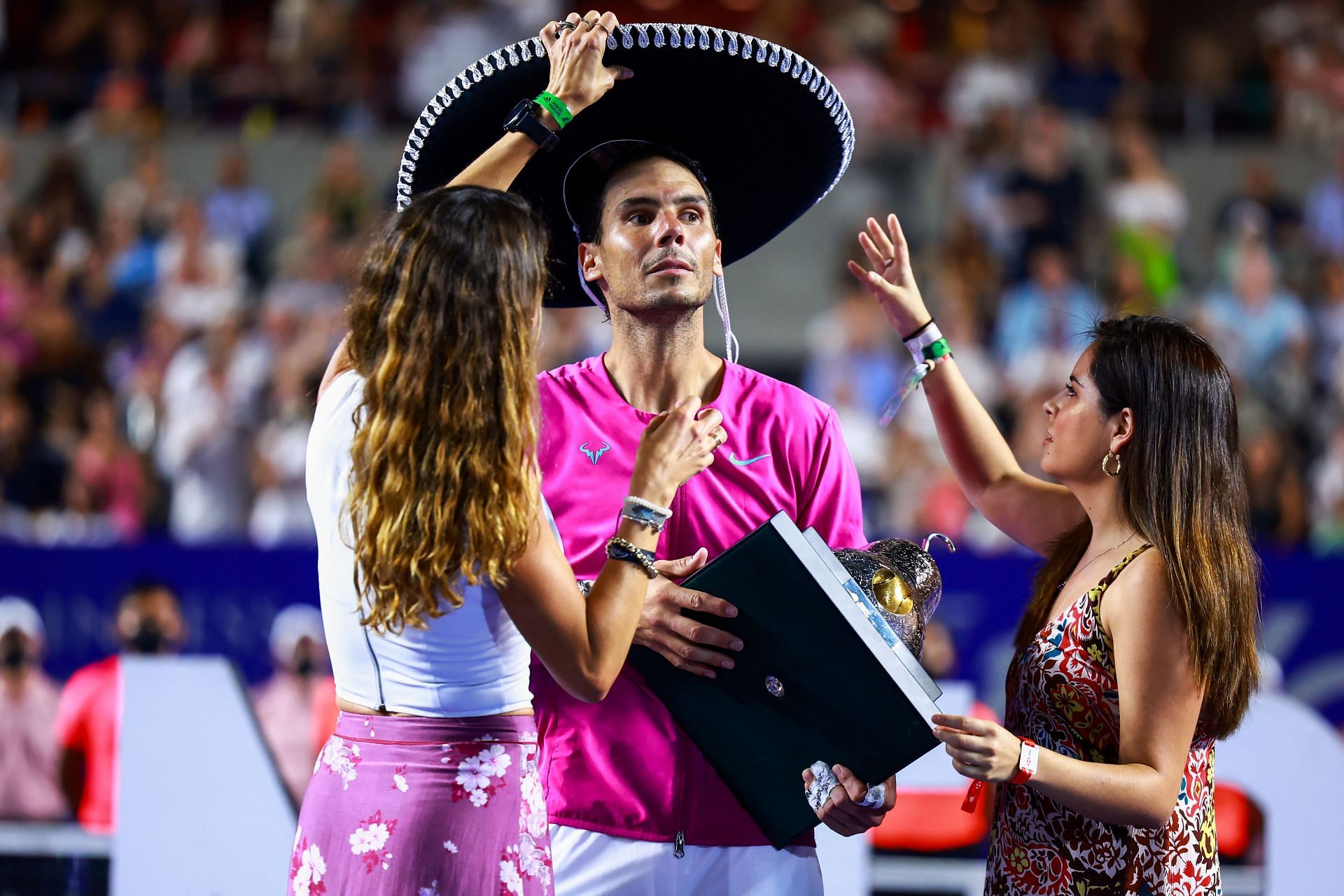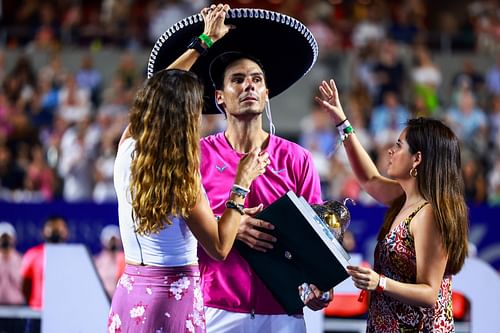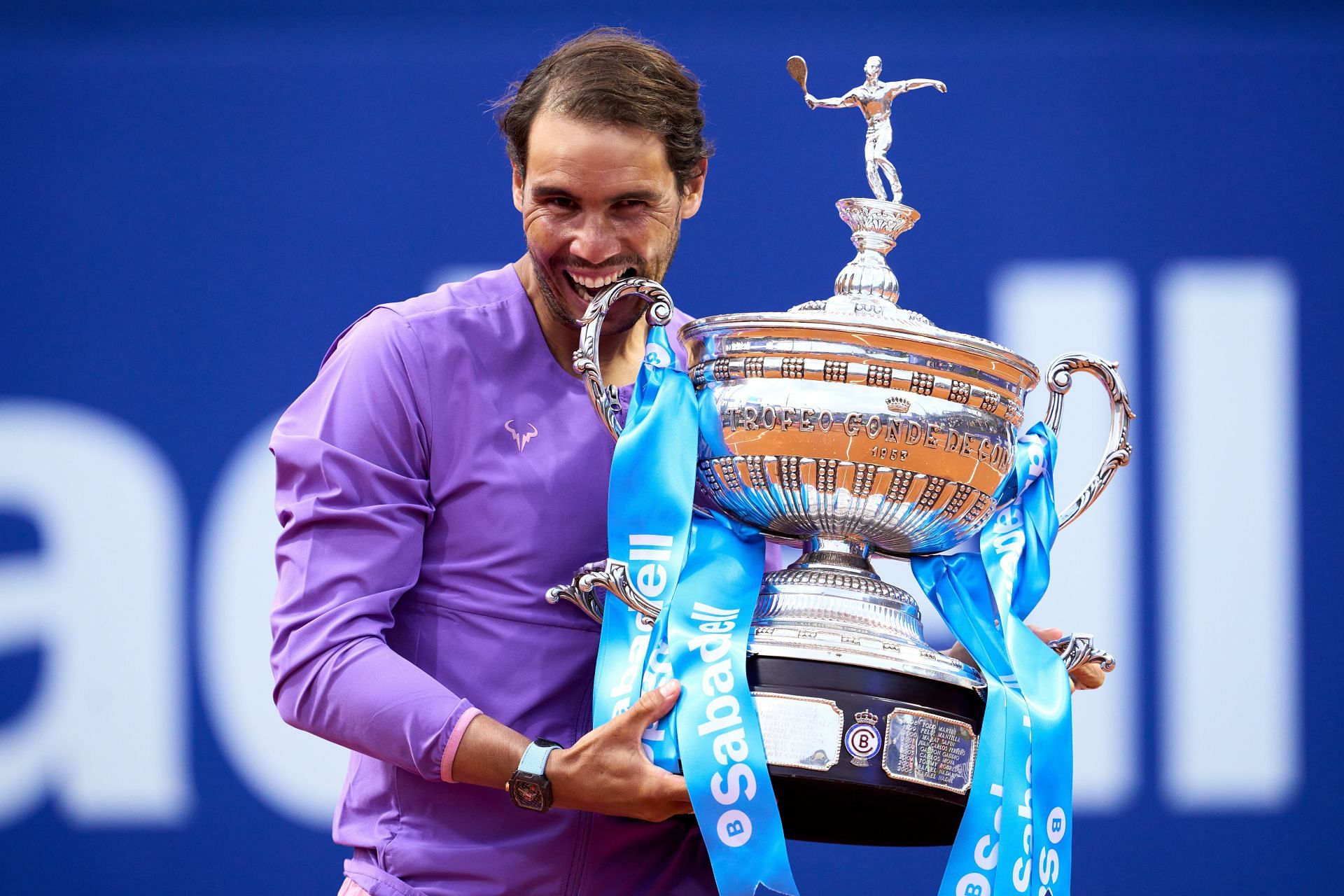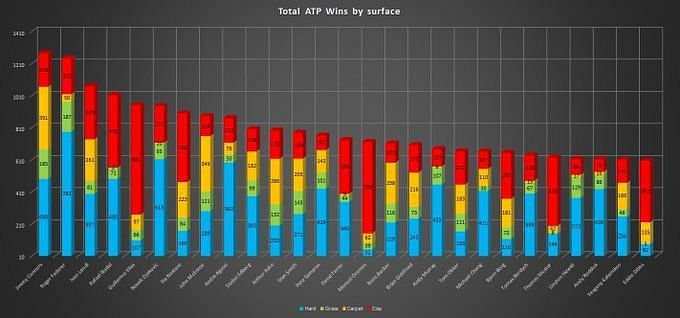
Rafael Nadal becomes 2nd male player in Open Era to win at least 25 titles on 2 different surfaces with Acapulco triumph

Rafael Nadal beat the in-form Cameron Norrie 6-4, 6-4 in the Acapulco final on Saturday to secure his third consecutive title this season. With the victory, the Spaniard took home his 91st career title on the ATP tour.
Nadal's triumph in Acapulco also marked his 25th title on hardcourt, making him only the second male player after Ivan Lendl to win at least 25 titles on hardcourt and clay.
Lendl, on his part, won 32 and 28 titles on hardcourt and clay respectively during his career. The Czech was equally proficient on carpet, winning 32 titles on the surface. For academic purposes, the likes of Roger Federer and Novak Djokovic are a fair few titles shy of making this list, having won 19 and 17 titles each on their second-best surfaces (grass and clay).
Another statistic that points to Nadal's versatility is the fact that he is the only male player in the Open Era to have won at least six Majors on both hardcourt and clay. While the Spaniard has won a whopping 13 French Open titles, he has also won four US Opens and two Australian Open titles in his illustrious career.
The Spaniard is also the only male player other than Djokovic to have won at least 10 Masters 1000 titles on both hardcourt and clay. He has won 10 and 26 titles respectively on hardcourt and clay.
Rafael Nadal is the only player in the Open Era to win at least 450 matches on both hardcourt and clay

While Nadal shares some records with Lendl and Djokovic, he stands alone when it comes to match wins. The Spaniard is the only player in the Open Era to have won at least 450 matches on both surfaces.
Nadal has won a whopping 506 matches on hardcourt, making him one of the most successful players on the surface. He trails only three players - Roger Federer (783), Novak Djokovic (613) and Andre Agassi (592) - in match wins on the surface.
The Spaniard's tally of 464 wins on clay happens to be the third highest on the surface after Guillermo Vilas (681) and Manuel Orantes (569).
